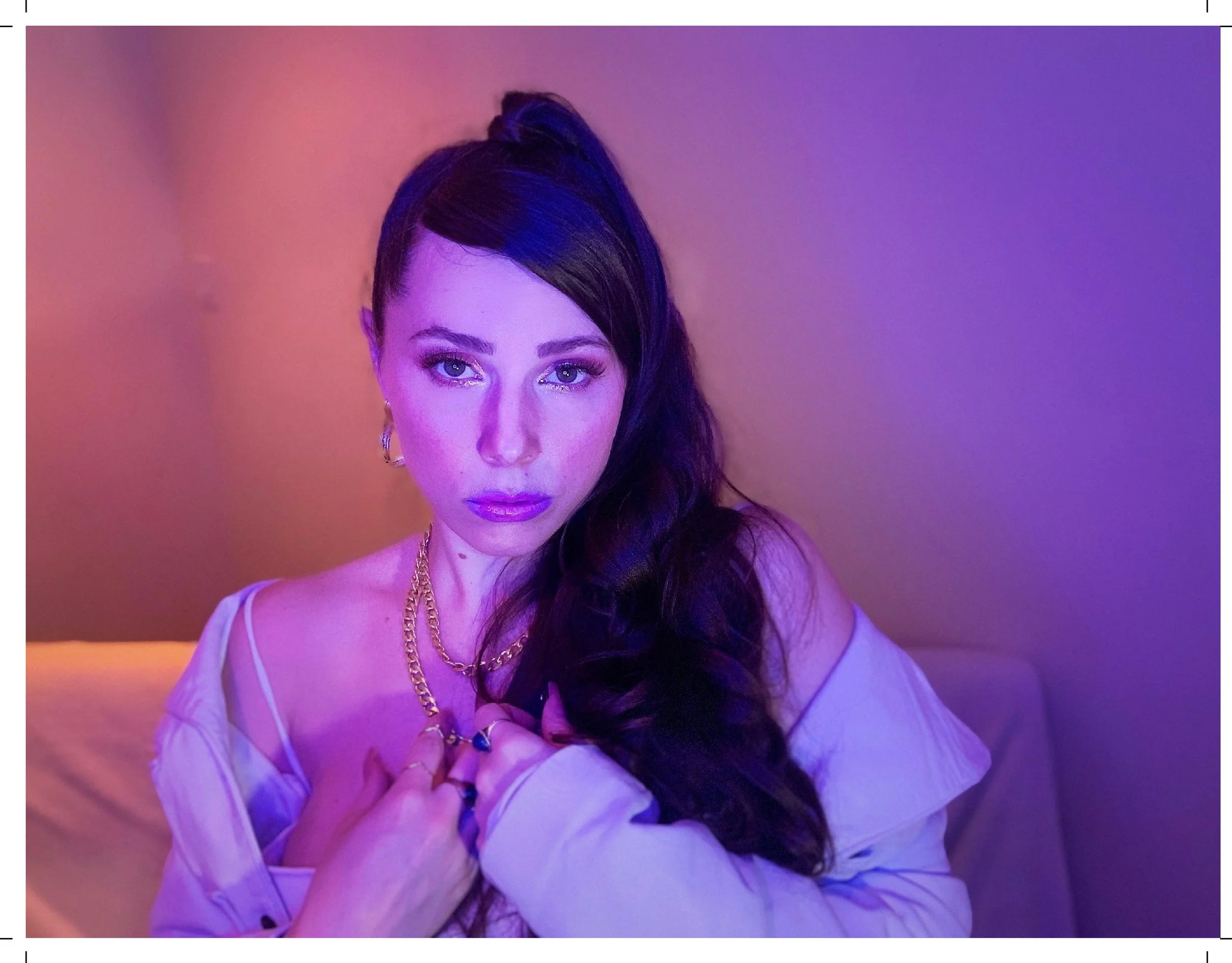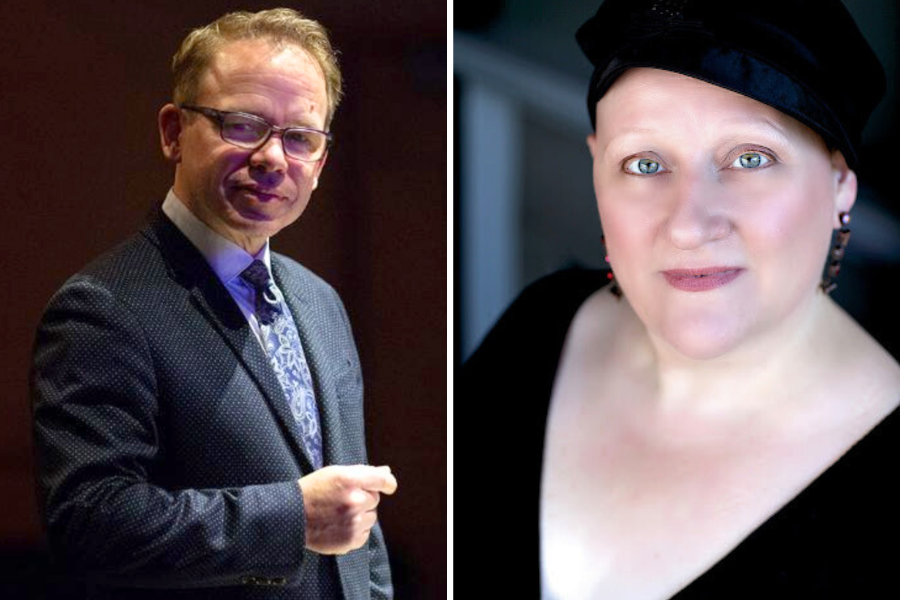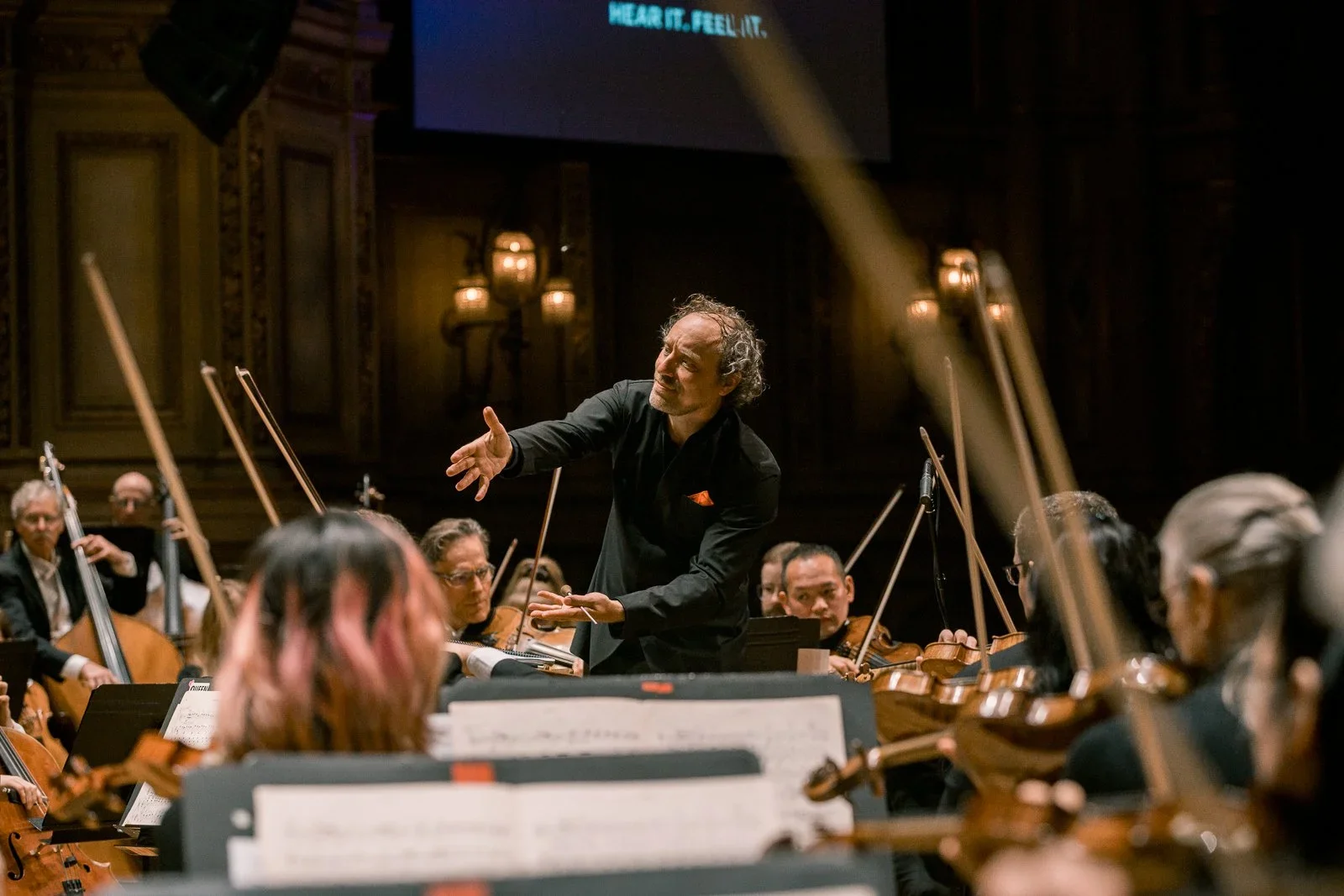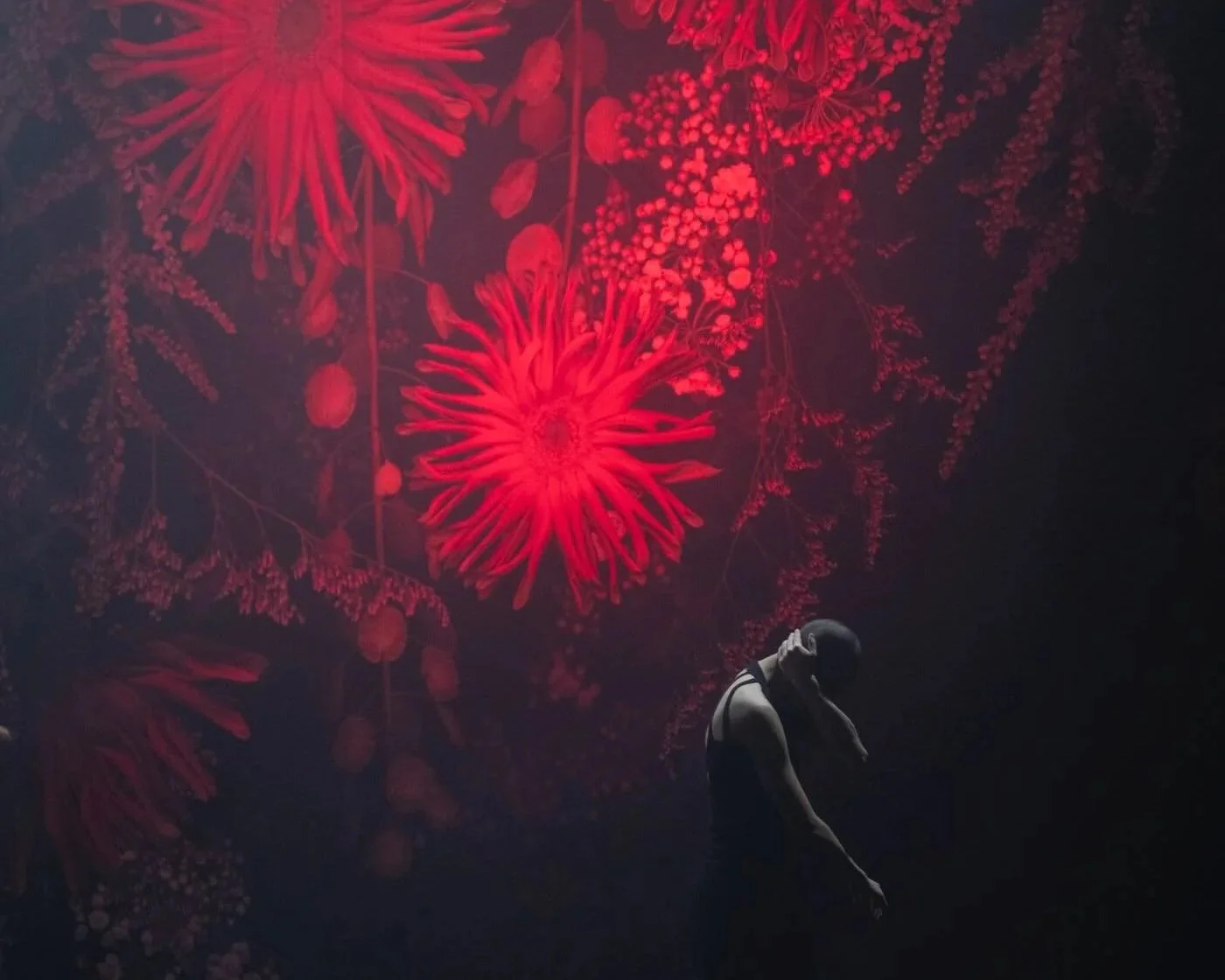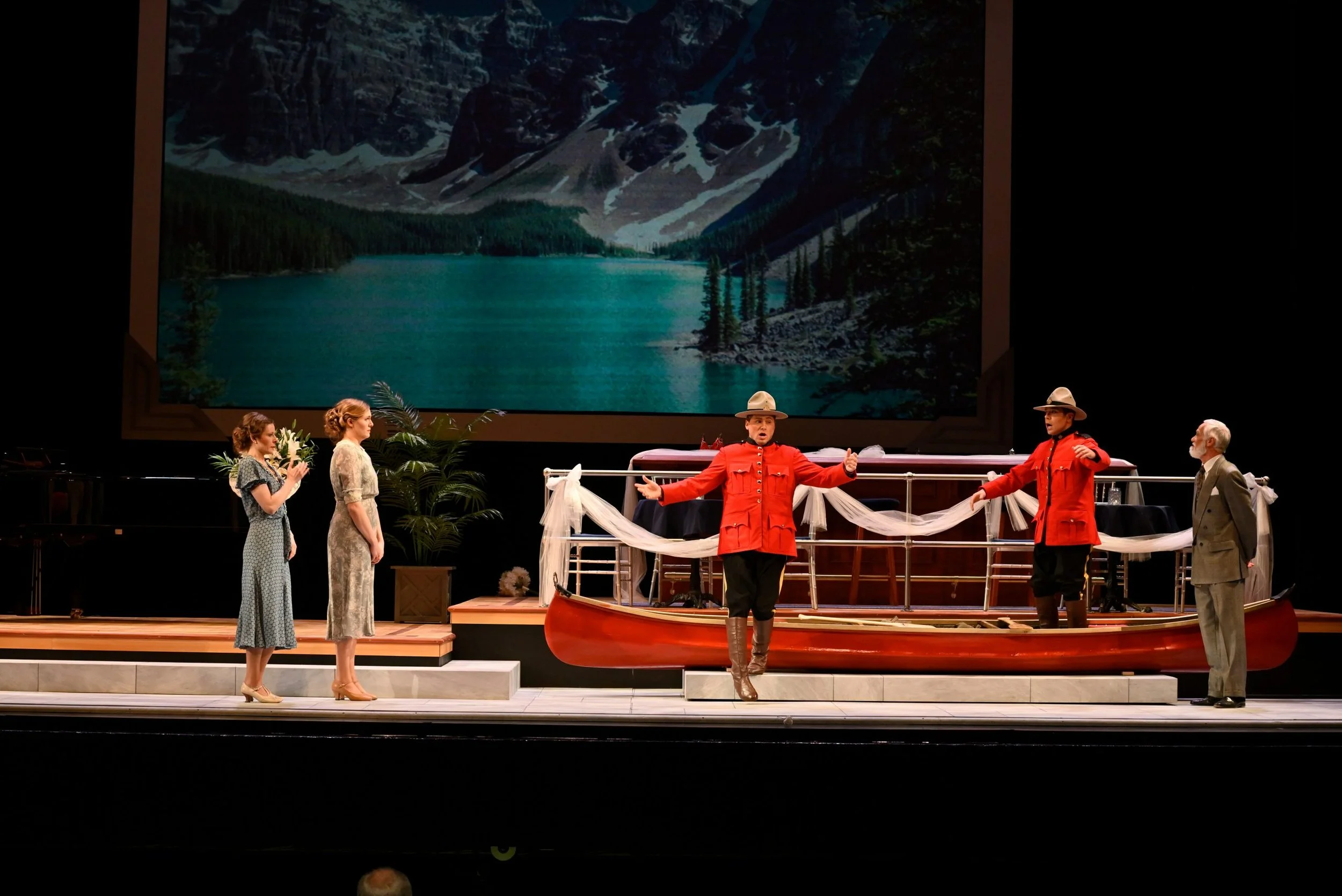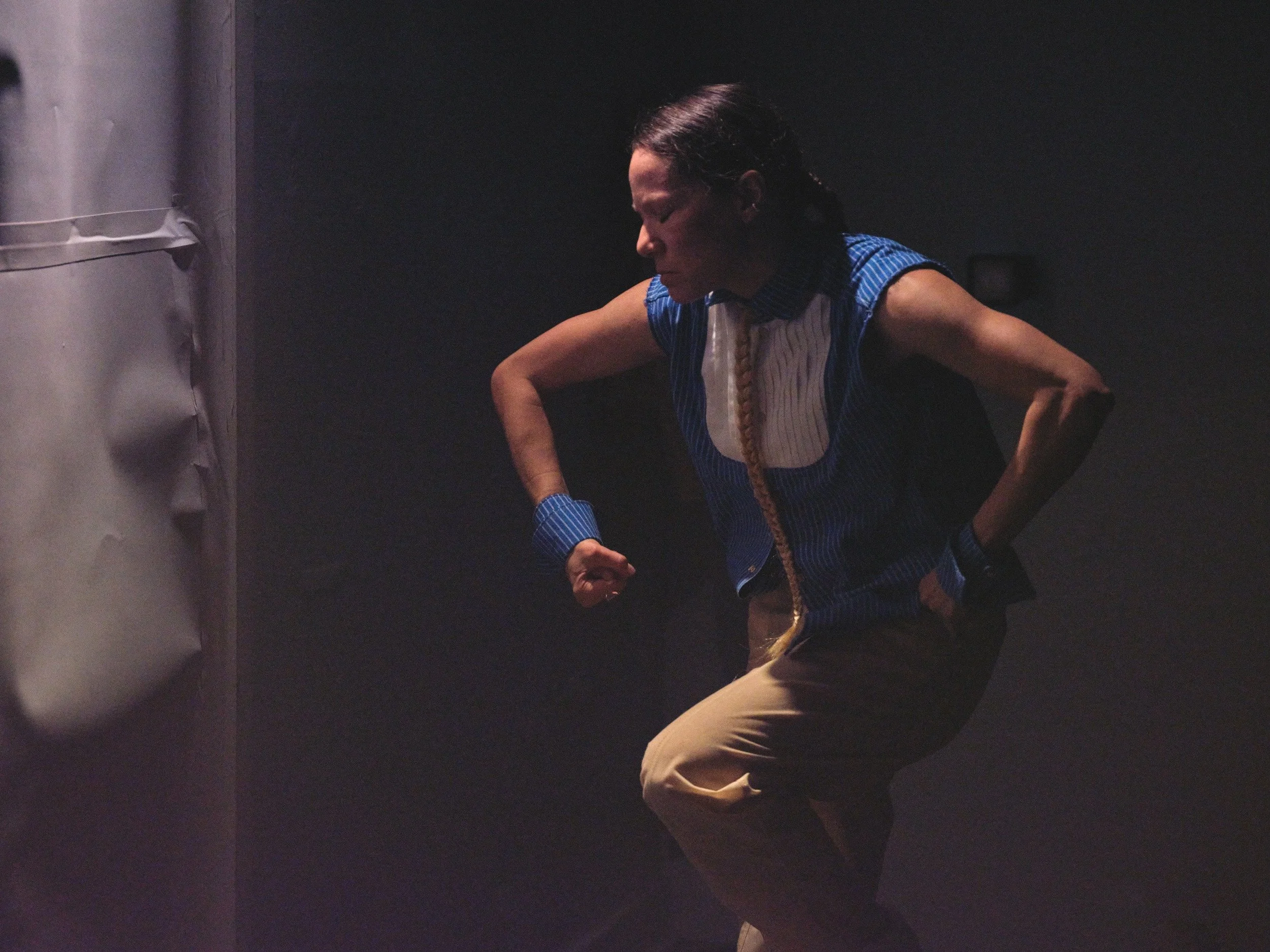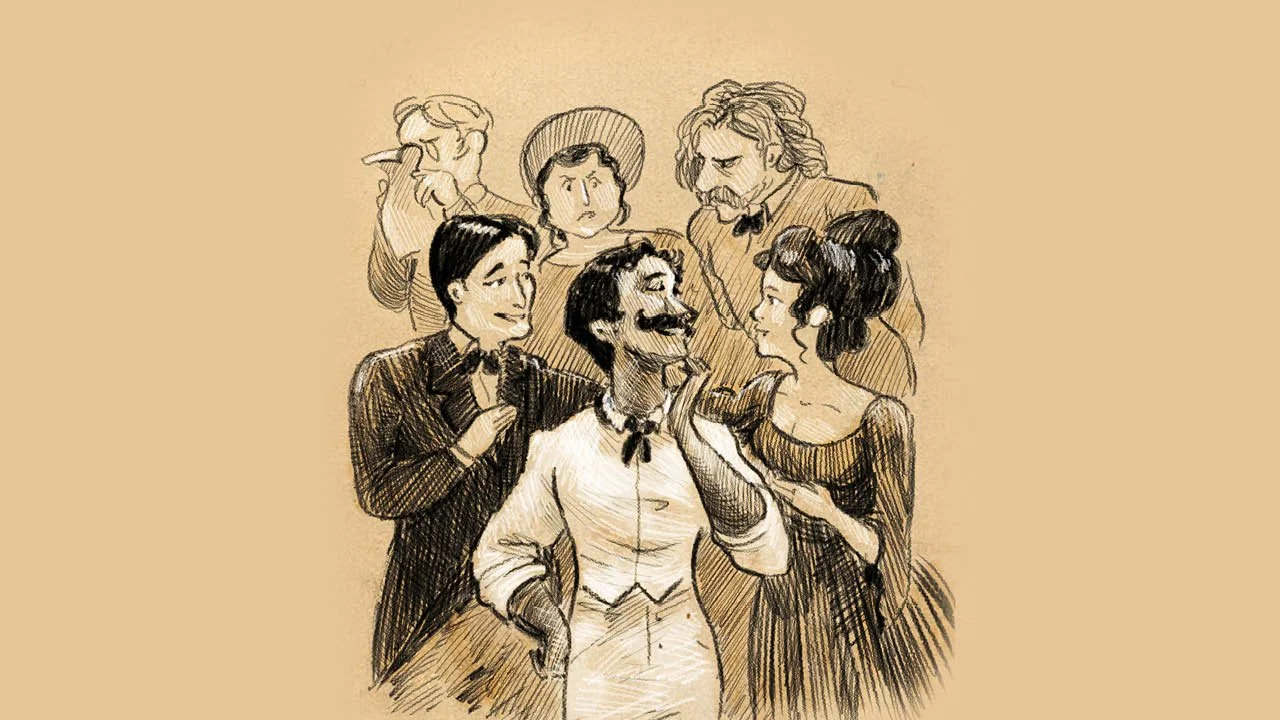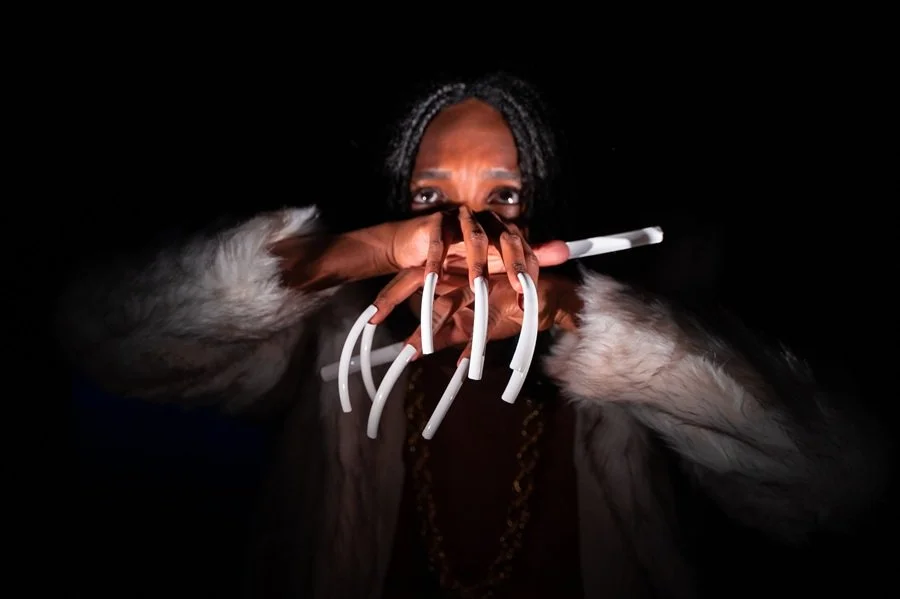Singer-songwriter Caitlin Goulet shares raw truths in dreamy alt-pop and alternative R&B
The local artist of Métis, French, Irish, and Scottish ancestry performs live at this year’s Talking Stick Festival
Caitlin Goulet.
As part of the 2022 Talking Stick Festival, Caitlin Goulet performs at Indigenous Summer Stage co-presented by Full Circle: First Nations Performance and TD Vancouver International Jazz Festival on June 24 at šxʷƛ̓exən Xwtl’a7shn (formerly the QET Plaza) at 4:30 pm; and at Let’s Hear It! Live Indigenous Showcase co-presented By Full Circle: First Nations Performance and Music BC at The Fortune Sound Club on June 25 at 7 pm
CAITLIN GOULET REMEMBERS so many road trips with her family while she was growing up, when being in the car meant her parents blasting everything from disco and Motown to Elton John, Supertramp, and the Guess Who. Music was also always on in the living room, where family dance parties would often break out. Mariah Carey and Janet Jackson were early inspirations. Later, her stepdad introduced her to grunge, the Doors, Bob Marley, and The Tea Party. An uncle, who was a member of the Vancouver Men’s Chorus, shared his love of choral music. Goulet became obsessed with Janis Joplin and other women in music, like Lauren Hill, and female-fronted bands like the Spice Girls, for a while, then got into blues, jazz, and R&B. Music was everywhere.
Goulet—who grew up in Calgary on the territories of the Blackfoot Confederacy (Siksika, Kainai, Piikani), the Tsuut’ina, the Îyâxe Nakoda Nations, and the Métis Nation of Alberta—wound up going to Randolph College for Performing Arts to study theatre. Dabbling in that art form made her realize it wasn’t for her, and that she wanted to dedicate her life to music.
“When I went to theatre school, at the time there were a lot of limitations for females in theatre,” Goulet says in a phone interview with Stir, her nine-month-old baby cooing in the background. “There weren't a lot of female-led roles available. And understandably, the theatre world wants you to stick to the script; people are depending on you to stick to the script. But that didn’t feel as natural to me; I used to always want to make songs my own.
“When you’re in theatre, you’re told which songs you sing, what you’re going to wear while you’re on stage, how much you get to speak, and what stories you’re going to tell. The more I went down the road of life, I just felt I wanted to decide what I’m going to wear and what I’m going to say. I started writing songs and just really wanted to perform.”
Goulet, who is of Métis, French, Irish, and Scottish heritage, did mainly cover songs when she was first starting out; the popular approach had her booking steady gigs. Then made herself an ultimatum: she wasn’t allowed to take any more shows until she had enough original material to do a full set. “I’m really thankful I made that choice,” Goulet says. “Now that we’re going back to live shows and I am asked if I can do a 20-minute set, I have to choose which songs I’m going to do. It’s a good problem to have, because I love them all and am connected to all of them.”
In 2019, Goulet released her first music video, “Dive Deep”, through support from Amplify BC, Creative BC, and The City of Vancouver. Her debut album, Inside Thoughts, came out in June 2021, the release financially supported by the First Peoples’ Cultural Council, through which she had previously participated in the Indigenous Music Retreat. During the pandemic, Goulet and her partner, producer/rapper Marzzybaby, started recording at home, releasing the singles “Easy On Me” and “I Need You”.
Goulet has developed her own blend of dream-pop, alternative R&B, and alt-pop, a jazz-inflected sound with lyrics that are conversational, vulnerable, direct, and raw.
Local audiences will have the opportunity to hear Goulet perform live at this year’s Talking Stick Festival. It’s a chance for her not only to do what she loves the most but also to break down stereotypes; she points out that she often faces the misperception that Indigenous artists perform strictly Indigenous music.
“I don’t perform culturally traditional music,” she says. “People kind of expect an Indigenous artist to exclusively share cultural music. Actually, a lot of us make contemporary music and contemporary art, and we deserve a space and a voice.”
For Goulet, singing is a way to explore and express things in a unique way and in a safe and comfortable place.
“For a long time I felt like music was really the only place I could speak the ugly truths about life and the things I’ve been through and the things I think or believe,” Goulet says. You can just go on-stage and step into a different space. I can become someone else for a time.
“I just feel almost more confident on-stage and less awkward,” she adds. “Talking is so awkward for me. Song-writing forces you to be succinct. Music forces you to get to the point before the chorus, so I am just more confident and more clear in my storytelling.”
As for her set list for her upcoming shows, she’s still deciding which songs to perform. She has a lot to choose from.


